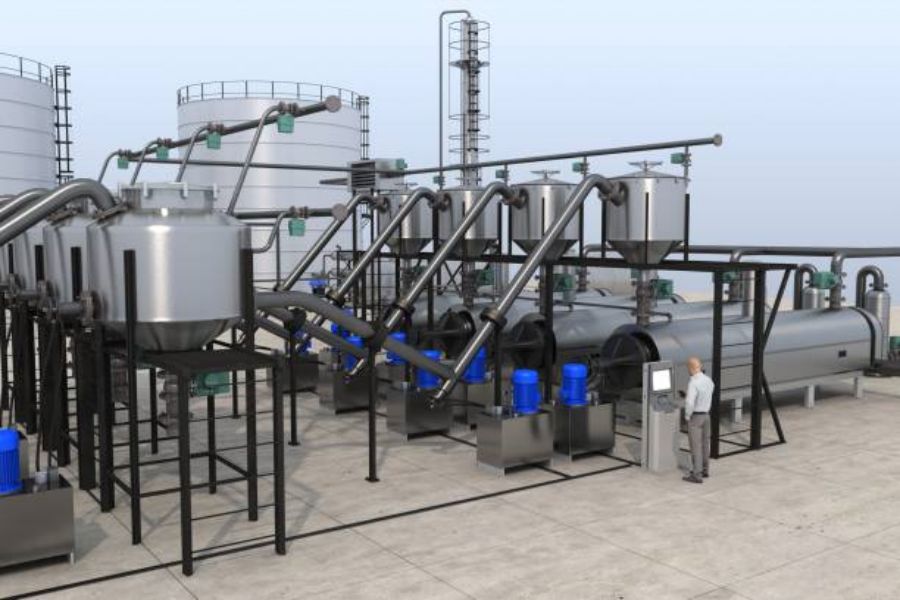types of chillers: A Comprehensive Overview
Chillers play a crucial role in various industries by providing reliable cooling solutions for different applications. With the ever-evolving technological advancements, it's essential to stay updated on the different types of chillers available in the market. In this article, we will take a closer look at the various types of chillers, their unique features, and the industries that benefit from their use.
1. Air-Cooled Chillers
Air-cooled chillers are widely used due to their simplicity and cost-effectiveness. These chillers use air as the cooling medium and eliminate the need for cooling towers, making them ideal for applications where water is scarce or costly. They are commonly used in commercial buildings, data centers, and small to medium-scale industrial facilities.
One of the key advantages of air-cooled chillers is their ease of installation, as they do not require extensive water piping systems. However, their efficiency can be affected by ambient temperature, which makes them less suitable for environments with high ambient temperatures or limited air circulation.
2. Water-Cooled Chillers
Water-cooled chillers, as the name suggests, utilize water as the primary cooling medium. They are known for their high efficiency and precise temperature control, making them suitable for applications requiring extremely low temperatures or consistent cooling. Industries such as pharmaceuticals, chemical processing, and food and beverage heavily rely on water-cooled chillers.
These chillers typically require a cooling tower or a water source for heat dissipation, which may increase installation and maintenance costs. However, their ability to operate efficiently in various ambient conditions makes them a popular choice for large-scale industrial applications.
3. Absorption Chillers
Absorption chillers offer an alternative cooling solution by utilizing heat instead of mechanical energy to generate chilled water. They operate on the principle of absorption refrigeration, where heat is used to drive the cooling process, making them highly energy-efficient.
These chillers often utilize waste heat or renewable energy sources as their primary energy input, making them environmentally friendly. Absorption chillers are commonly used in industrial processes, district cooling systems, and facilities where waste heat is readily available, such as power plants and refineries.
4. Centrifugal Chillers
Centrifugal chillers are known for their high cooling capacity and energy efficiency, making them suitable for large-scale commercial and industrial applications. These chillers use centrifugal force to compress and cool the refrigerant, providing efficient cooling solutions for facilities with high cooling demands.
Centrifugal chillers are commonly used in hospitals, manufacturing plants, and large office buildings. They offer precise temperature control, low maintenance requirements, and quiet operation, making them an ideal choice for environments where noise and reliability are crucial factors.
5. Screw Chillers
Screw chillers are widely used in applications that require a balance between efficiency, reliability, and cost-effectiveness. These chillers utilize a screw compressor, which is known for its durability and ability to handle varying cooling loads efficiently.
Industries such as HVAC, chemical processing, and data centers often rely on screw chillers for their cooling needs. These chillers can operate efficiently in a wide range of conditions and offer excellent part-load efficiency, making them suitable for applications with fluctuating cooling demands.
6. Scroll Chillers
Scroll chillers are compact and versatile cooling systems that are commonly used in small to medium-scale applications. These chillers utilize scroll compressors, which are known for their quiet operation, low maintenance requirements, and high energy efficiency.
Scroll chillers find applications in commercial buildings, laboratories, and medical facilities where space may be limited, and precise temperature control is required. Their compact design and ease of installation make them an ideal choice for retrofit projects or environments with space constraints.
7. Reciprocating Chillers
Reciprocating chillers, also known as piston chillers, are widely used in applications that require high reliability and precise temperature control. These chillers utilize reciprocating compressors, which offer excellent part-load efficiency and can handle varying cooling loads effectively.
Industries such as pharmaceuticals, food processing, and laboratories often rely on reciprocating chillers for their critical cooling needs. Their ability to maintain consistent cooling temperatures and reliable operation makes them a preferred choice for applications with strict temperature requirements.
8. Magnetic Levitation Chillers
Magnetic levitation chillers, also known as maglev chillers, are a relatively new and innovative type of chiller that utilizes magnetic bearings to increase efficiency and reduce maintenance requirements. These chillers offer significant energy savings and quiet operation, making them suitable for various applications.
Maglev chillers find applications in commercial buildings, data centers, and hospitals where energy efficiency and noise reduction are essential. Their advanced technology and ability to operate at varying loads make them an eco-friendly and cost-effective cooling solution.
9. Portable Chillers
Portable chillers are compact and mobile cooling units that can be easily transported and installed as per the cooling requirements. These chillers are typically used in applications that require temporary or supplemental cooling, such as construction sites, events, or emergency cooling situations.
Portable chillers offer flexibility and convenience, as they can be quickly moved from one location to another. They are available in various sizes and cooling capacities, allowing users to choose the most suitable option for their specific cooling needs.
10. Hybrid Chillers
Hybrid chillers combine multiple cooling technologies to provide enhanced efficiency and flexibility. These chillers often integrate two or more types of chillers, such as an absorption chiller and a traditional chiller, to optimize energy consumption and cooling performance.
Hybrid chillers are commonly used in large-scale industrial applications, district cooling systems, and facilities with fluctuating cooling demands. By leveraging the strengths of different chiller technologies, hybrid chillers offer a cost-effective and environmentally friendly cooling solution.
